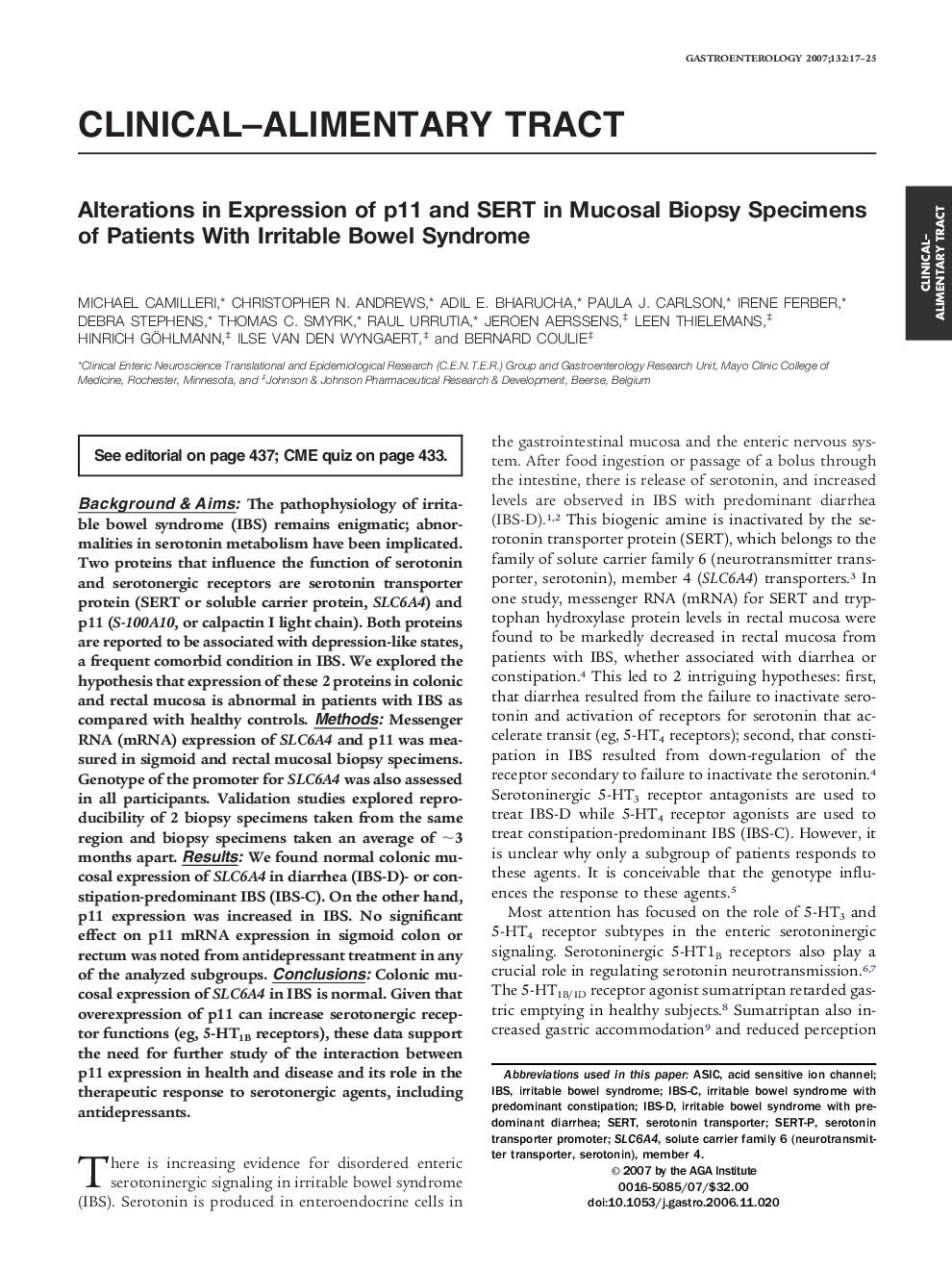| Article ID | Journal | Published Year | Pages | File Type |
|---|---|---|---|---|
| 3296300 | Gastroenterology | 2007 | 9 Pages |
Background & Aims: The pathophysiology of irritable bowel syndrome (IBS) remains enigmatic; abnormalities in serotonin metabolism have been implicated. Two proteins that influence the function of serotonin and serotonergic receptors are serotonin transporter protein (SERT or soluble carrier protein, SLC6A4) and p11 (S-100A10, or calpactin I light chain). Both proteins are reported to be associated with depression-like states, a frequent comorbid condition in IBS. We explored the hypothesis that expression of these 2 proteins in colonic and rectal mucosa is abnormal in patients with IBS as compared with healthy controls. Methods: Messenger RNA (mRNA) expression of SLC6A4 and p11 was measured in sigmoid and rectal mucosal biopsy specimens. Genotype of the promoter for SLC6A4 was also assessed in all participants. Validation studies explored reproducibility of 2 biopsy specimens taken from the same region and biopsy specimens taken an average of ∼3 months apart. Results: We found normal colonic mucosal expression of SLC6A4 in diarrhea (IBS-D)- or constipation-predominant IBS (IBS-C). On the other hand, p11 expression was increased in IBS. No significant effect on p11 mRNA expression in sigmoid colon or rectum was noted from antidepressant treatment in any of the analyzed subgroups. Conclusions: Colonic mucosal expression of SLC6A4 in IBS is normal. Given that overexpression of p11 can increase serotonergic receptor functions (eg, 5-HT1B receptors), these data support the need for further study of the interaction between p11 expression in health and disease and its role in the therapeutic response to serotonergic agents, including antidepressants.
